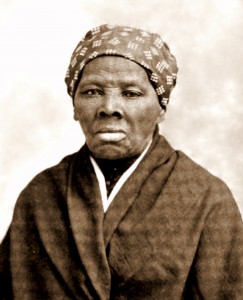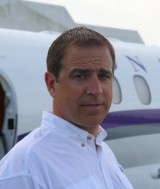By Chris Brady
 If leadership is about attacking the status quo and railing against injustice, then the unsung and often unnamed heroes of what came to be known as the “Underground Railroad” are a great example.
If leadership is about attacking the status quo and railing against injustice, then the unsung and often unnamed heroes of what came to be known as the “Underground Railroad” are a great example.
A loose network of sorts, committed to aiding escaped slaves to reach freedom, existed in the North American colonies at least as far back as George Washington’s time.
The “brethren” of the Quaker sect had long been involved in procuring freedom for slaves, and found mention in one of the first President’s correspondences.
Eventually, the affiliation would come to be called the Underground Railroad, and would consist of a highly developed process of the sharing of responsibility.
Certain participants would be responsible for actually getting slaves off a plantation. Others would be involved in concealing them secretly in their homes. Still others would be responsible for transport.
No matter the share of the load, each step in the process was extremely dangerous. This was especially true for the large number of former slaves working within the Railroad.
Whites caught assisting runaway slaves would be convicted of breaking the law. Blacks would be returned to bondage, and, regarding their efforts at “stealing property,” could expect harsh, and likely even fatal, punishment.
Further, the Fugitive Slave Act was passed in Congress forcing northern states to assist southerners in the recapturing of their “property.” This meant that upon reaching the north, after an arduous and dangerous journey, an escaped slave could never really be free.
They were, at best, only free for the moment. Fortunately, as the Civil War drew nearer, northern states were less and less likely to participate in the returning of slaves to the south.
Harriet Tubman, an escaped slave herself, was one of the most active participants in the Underground Railroad, responsible for the freedom of more than 300 slaves. It is approximated that she made 19 trips into the deep south, risking her life for the freedom of others.
It would be almost impossible in our era of peace, comfort, education, and tolerance to really comprehend just what it was like for the heroes of the Railroad. Their risk of injury, punishment, torture, and death were enormous.
Their allies were few. Their next journey into the deep, dark south, could be their last. Preachers in pulpits strained the scriptures to try and find Biblical evidence that slavery was acceptable. Lawyers in every court of the land argued for its legality.
It is hard for us to even imagine the concept that one human being could consider another to be their “property.” Heroes like Tubman and thousands of others involved in the Underground Railroad embodied the true spirit of leadership.
They confronted a brutal reality with fierce determination, massive risk to personal peace and affluence, and with unrelenting perseverance.
This is what leaders do. They cannot stand idle when they are needed. They cannot hide behind their peace and affluence, nor take the easy way out, nor sell out to comfort, when confronted with injustice. Leaders don’t calculate the cost when it comes to doing what’s right: they simply do it.
In a day when it is hard to get people to leave their couch, put down their video games and live a real life, it is incredible to consider that just a few short years ago, people were willing to risk their entire lives, fortunes, and reputations in the name of freedom for others.
May that spirit of justice still live on in our society. May that streak of leadership courage still find its way into the hearts of many amongst us today. Our countries need it more than ever. Slavery in the United States may be gone, but injustice still reigns in a thousand different forums in our world and if good people do nothing, evil wins.
But if leaders can be aroused across the land, to stand up and lead, to fight for what they believe in, to rail against injustice, to protect and free others less fortunate, then the spirit of Harriet Tubman and the operators of the Underground Railroad lives on.
*******************************
 Chris Brady co-authored the New York Times, Wall Street Journal, Business Weekly, USA Today, and Money Magazine best-seller Launching a Leadership Revolution.
Chris Brady co-authored the New York Times, Wall Street Journal, Business Weekly, USA Today, and Money Magazine best-seller Launching a Leadership Revolution.
He is also in the World’s Top 30 Leadership Gurus and among the Top 100 Authors to Follow on Twitter. He has spoken to audiences of thousands around the world about leadership, freedom, and success.
Mr. Brady contributes regularly to Networking Times magazine, and has been featured in special publications of Success and Success at Home. He also blogs regularly at Chris Brady.
He is an avid motorized adventurer, pilot, world traveler, humorist, community builder, soccer fan, and dad.






Speak Your Mind
You must be logged in to post a comment.